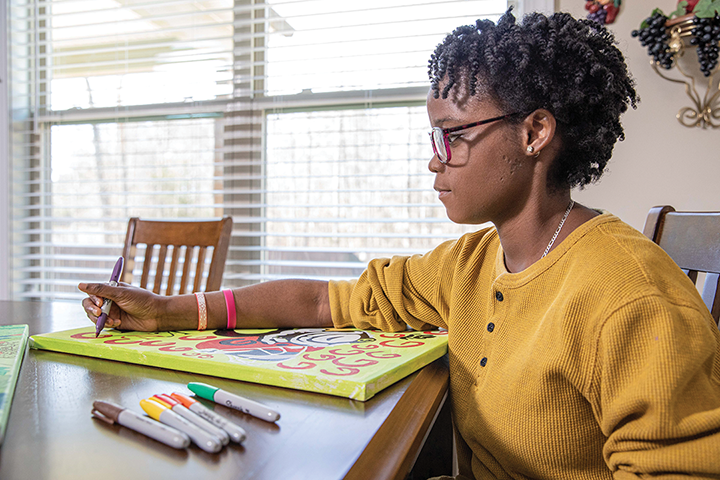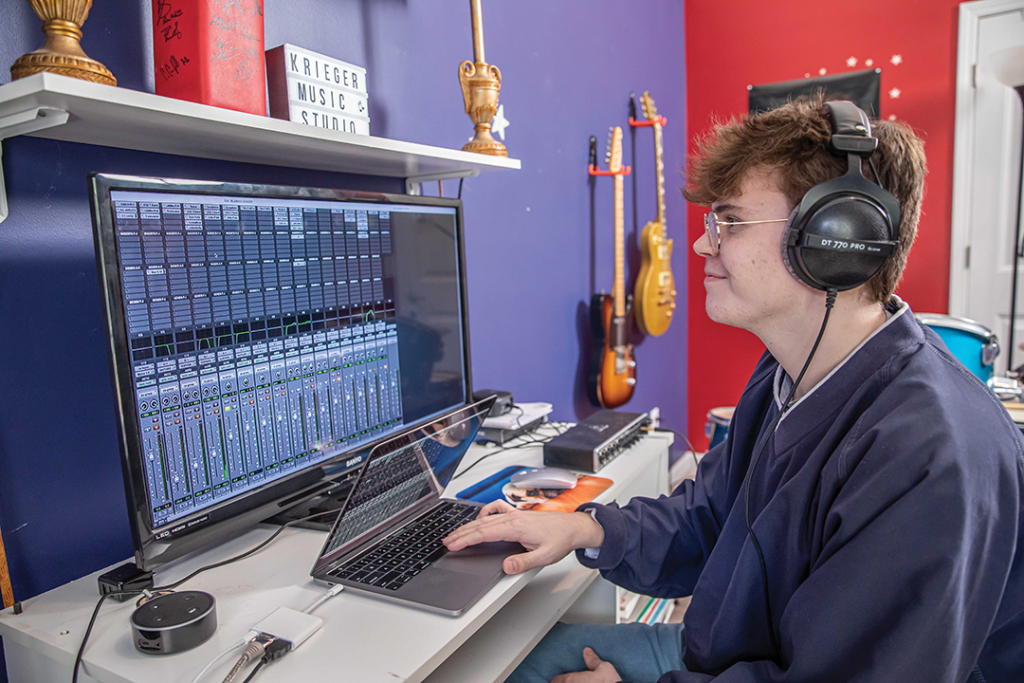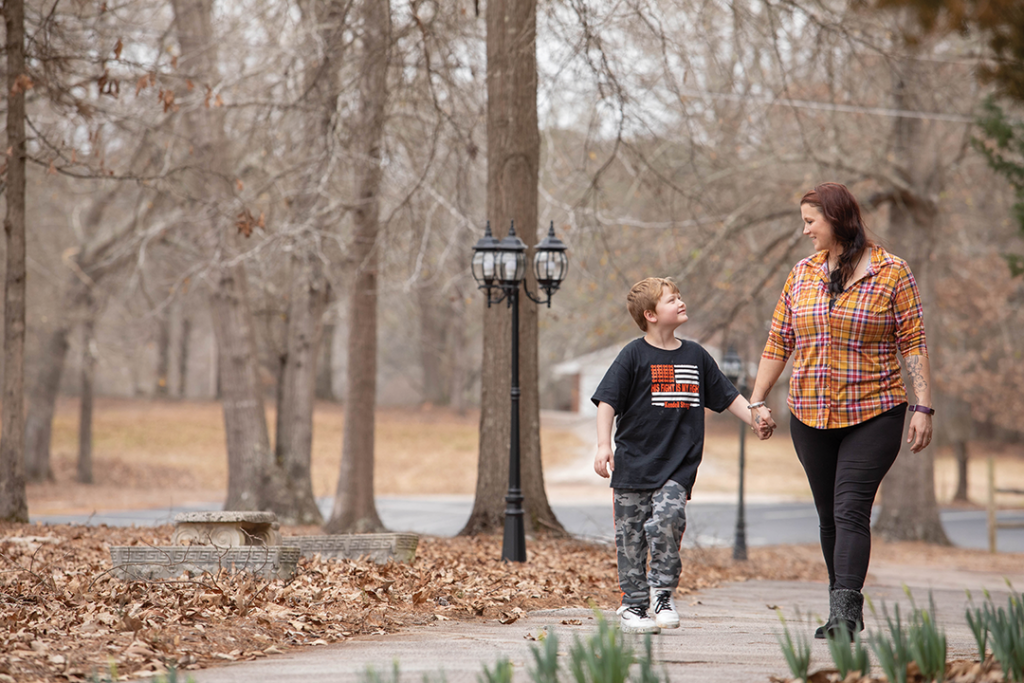Makayla Cosby was a picture of good health until mysterious symptoms appeared at the tender age of 7. After extensive testing, her family learned she had childhood onset lupus. Cosby has faced many challenges in the 15 years since her diagnosis, but she remains determined to put her best foot forward.
When Makayla Cosby was 7 years old, she began experiencing high fevers. She also started losing weight and developed a red rash on her face. Her mother, Zandra Dvorak, took her to Newton Medical Center, assuming she might have the flu. Physicians there were stumped by her condition and sent her to Children’s Hospital of Atlanta. Cosby spent two weeks undergoing extensive tests until they finally had a diagnosis that surprised everyone.
She had childhood onset systemic lupus erythematosus (SLE), an autoimmune disease most people simply call lupus. According to Nationwide Children’s Hospital, the disease remains relatively rare in children, as only 15 to 20% of all SLE patients are younger than 15. Acquiring lupus before the age of 5 is extremely infrequent, and the majority of people with the disease are females between their late teens and 45 years of age. Though the condition can affect men and women of any age and race, it is more common in people of African American, Asian, Hispanic and Native American origin.
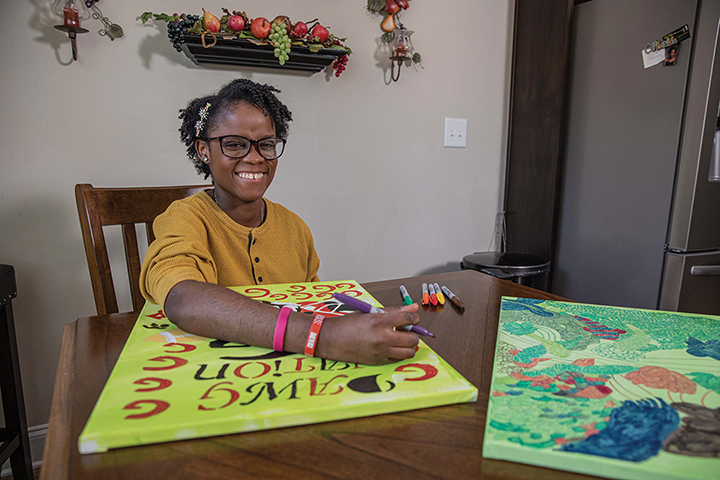
Lupus causes systemic inflammation in the body and can damage organs, skin and joints. The kidneys, lungs, heart and brain are most commonly affected, but lupus can wreak havoc on any of the body’s systems. Common symptoms include joint pain, hair loss, brain dysfunction, sun sensitivity and the fevers Cosby experienced. Lupus has no cure, but treatment can help minimize some of the symptoms. As for Cosby, lupus has damaged her kidneys and her brain. The severity of the disease also stunted her growth. Although she comes from a family of tall people, she is still the same height as an upper elementary student.
When Cosby was around 12 years old, she passed out in the middle of a neighborhood walk with her mother. Terrified, Dvorak called for an ambulance. Cosby was admitted to the hospital, where bleeding on the brain was discovered. Because blood destroys whatever brain tissue it touches, Cosby’s speech became permanently slurred; some developmental delays resulted. Soon after, Cosby began suffering from seizures. While she experienced a break from them at one point, they have returned at age 22. Her family knows a seizure is imminent when Cosby’s speech accelerates and she starts walking in circles. Caring for Cosby has been a family affair. Her aunt, Danica Thurman, has been a constant source of help for her niece.
“Not one time has she complained about anything. She is so strong. I’ve never once heard her complain about what she is going through.”
Danica Thurman
“Lupus is elusive,” she said. “I call it a chameleon disease. You never know what symptoms a flare up is going to bring. They can change every time.”
Like two-thirds of people with lupus, Cosby suffers from sun sensitivity. Other ultraviolet light sources besides the sun, such as fluorescent light bulbs, can trigger similar photosensitive reactions in people with SLE. This means that Cosby is often forced to remain indoors when the weather starts drawing everyone else outside. As a result, lupus has often led to loneliness and depression.
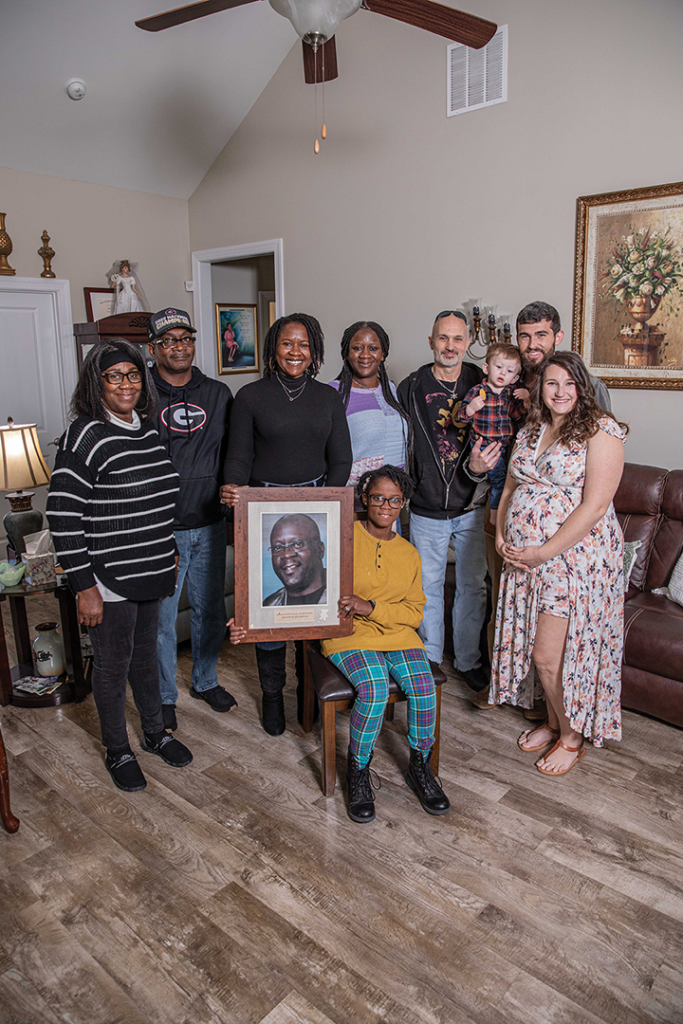
“Makayla deals with a lot of anxiety,” Thurman said. “When it starts flaring up, she gets shaky and sometimes starts crying from depression. Adolescence made everything harder.”
Because of her weakened immune system, Cosby was absent a lot during middle school. They tried homeschooling with the K12 curriculum, but with her developmental delays, it was difficult. By the time Cosby was 17, the family had decided to take her out of school. After Cosby turned 18, the situation became a little easier.
“She is more independent now,” Thurman said. “She knows how to take her medicine on her own and knows what to do when something happens with her health.” Cosby has also discovered the joy of art. Her family built her a studio downstairs, and Cosby finds solace there. “When I get depressed because I don’t get to go anywhere, I go downstairs, start drawing and I feel better,” Cosby said. “I love doing Georgia Bulldog, anime and nature sketches. I also crochet blankets and stuff.” The family loves receiving Makayla’s creative gifts. “She made us all blankets for our birthdays,” Thurman said, “and she makes everyone art at Christmas.”
Because of the work schedules of her parents, aunt and other family members, Cosby’s grandfather, Joe Louis Ward Jr., spent a lot of time with Cosby every week. He picked her up to go shopping and eat lunch at Red Lobster, their favorite restaurant. Unfortunately, Ward died from cancer in September. Through her pain, Cosby has remained kind and resolute.
“Not one time has she complained about anything,” Thurman said. “She is so strong. I’ve never once heard her complain about what she is going through.” Cosby offers invaluable advice for any young person facing a diagnosis of childhood onset lupus. “Just pray and thank God that you’re here,” she said. “Pray for strength and to keep pushing to get through every day, even when it’s hard.”
Click here to read more stories by Kari Apted.

